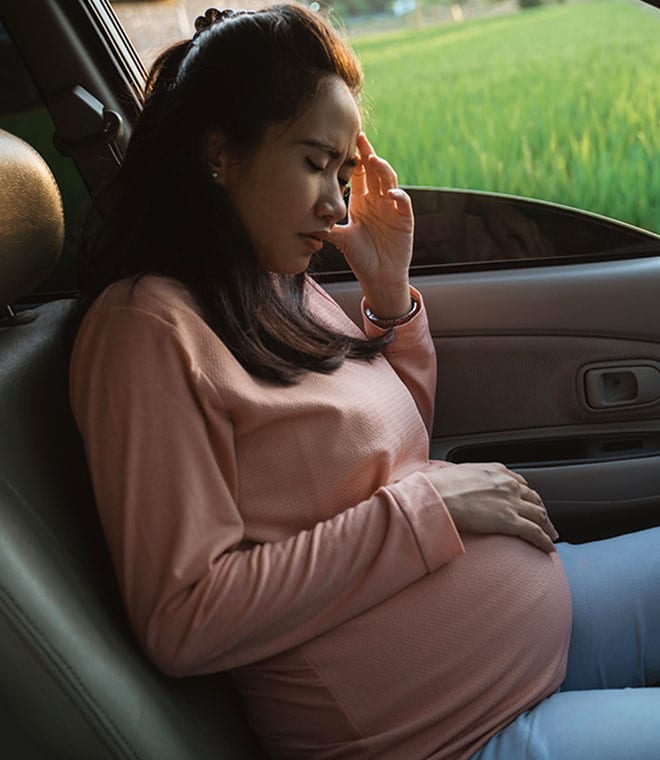Health
Are there car sick remedies that help?
By Katy Brodski-Quigley, MD, EdM Aug 22, 2024 • 5 min
Car sickness, a type of motion sickness, is a very unpleasant but mostly harmless problem that affects people in moving vehicles. It causes dizziness, nausea and sometimes vomiting, but these symptoms usually resolve shortly after the trip ends. While anyone can suffer from car sickness, children and women are more prone, especially pregnant women. The good news is that there are many over-the-counter and prescription medications that can help.
Over-the-counter remedies for motion sickness
Most of the time, car sickness can be treated with over-the-counter remedies. If you're choosing medication for a child or if you are pregnant, it's important to speak with a pharmacist or your healthcare provider beforehand. Not all medicines are safe for children or during pregnancy. The following car sickness remedies are available over the counter:
- Diphenhydramine (Benadryl)
- Dimenhydrinate (Dramamine)
- Meclizine (Bonine, Dramamine Less Drowsy)
Prescription car sickness medicine
If your car sickness is severe or if you haven't found relief from over-the-counter drugs, talk to your healthcare provider. There are several prescription medications for motion sickness, including:
- Meclizine (available over the counter and in prescription strength) is a medication that doctors often prescribe for dizziness. It can be effective for motion sickness as well.
- Promethazine is also a medication prescribed for car sickness.
- Scopolamine is available in a patch form and is commonly prescribed for motion sickness. This medication can cause drowsiness and blurred vision. People using this medication should exercise caution when driving or operating heavy machinery.
Natural motion sickness remedies and prevention
In addition to medications, there are some tips and tricks as well as natural remedies that may help with car sickness:
- Avoid reading, writing or watching videos in a moving vehicle
- Sit in the front of the vehicle, ideally by the window
- Try looking at the horizon rather than at nearby passing objects. You can also try lying down, reclining or closing your eyes.
- Drink plenty of water and eat small, frequent meals
- Avoid smoking, drinking alcohol or using recreational drugs
- Try to distract yourself with music, audiobooks or conversation
- Practice deep, regular breathing or meditation while on the move
- Try sucking on flavored lozenges or candy
- Try ginger drinks or lozenges. Ginger is a traditional herbal remedy for nausea that some modern research has indicated may be effective, although more research is needed. Some people find that green apples also help with motion sickness, but so far there is no scientific evidence for this.
- Acupressure may or may not be useful for motion sickness. There are acupressure bracelets and wrist massage points available for people who may want to try them.
Pregnant women are often affected by car sickness and motion sickness in general. In this case, it's best to discuss the issue with your gynecologist/obstetrician in advance, since not all medications are safe during pregnancy. Some healthcare providers may prescribe meclizine or dimenhydrinate for nausea during pregnancy.
If you suddenly develop car sickness, or if your symptoms become more severe, it's important for you to discuss those changes with a healthcare provider, as they can be a sign of illness.
Updated by Julie McDaniel, MSN, RN, CRNI, August 2024.



